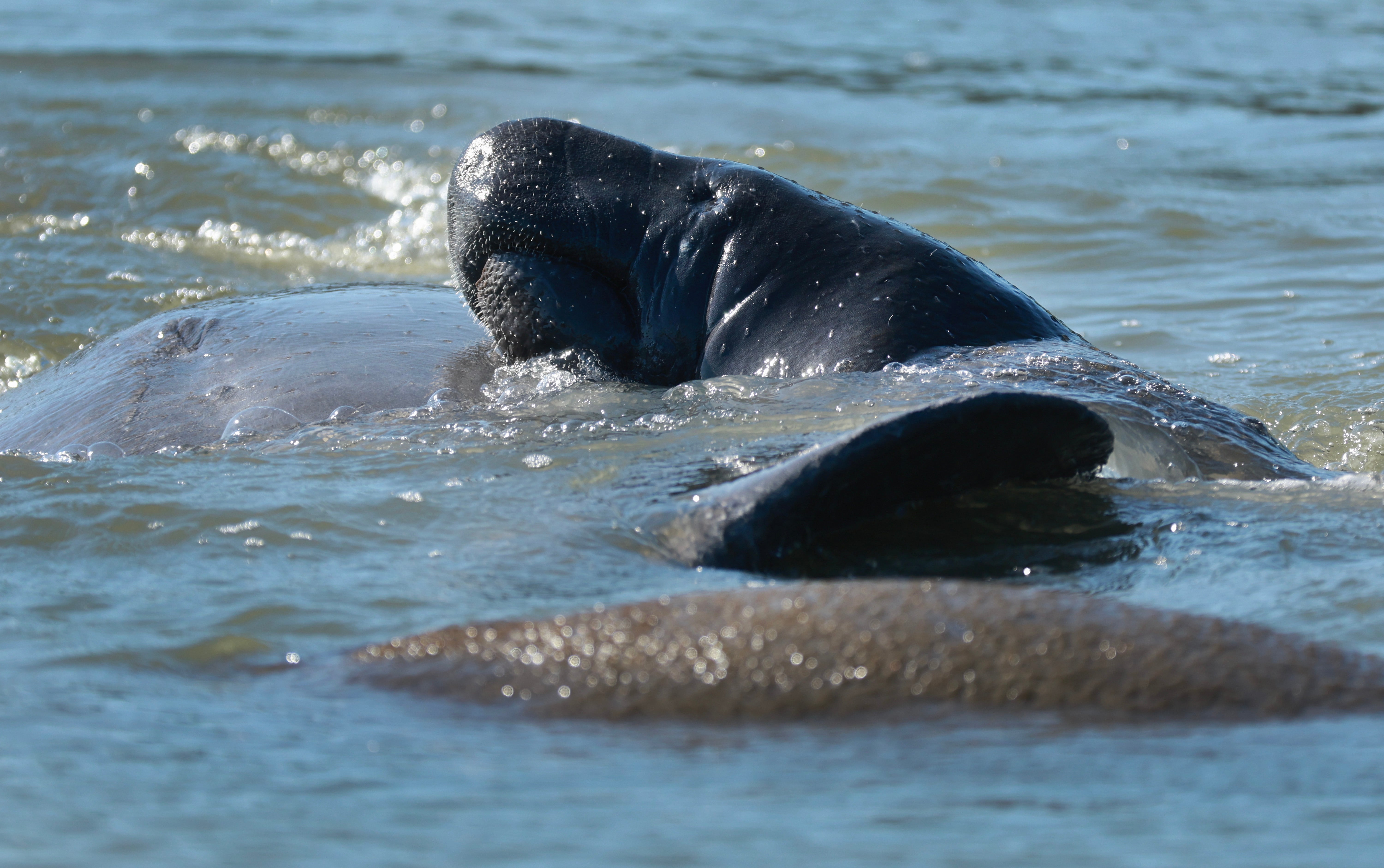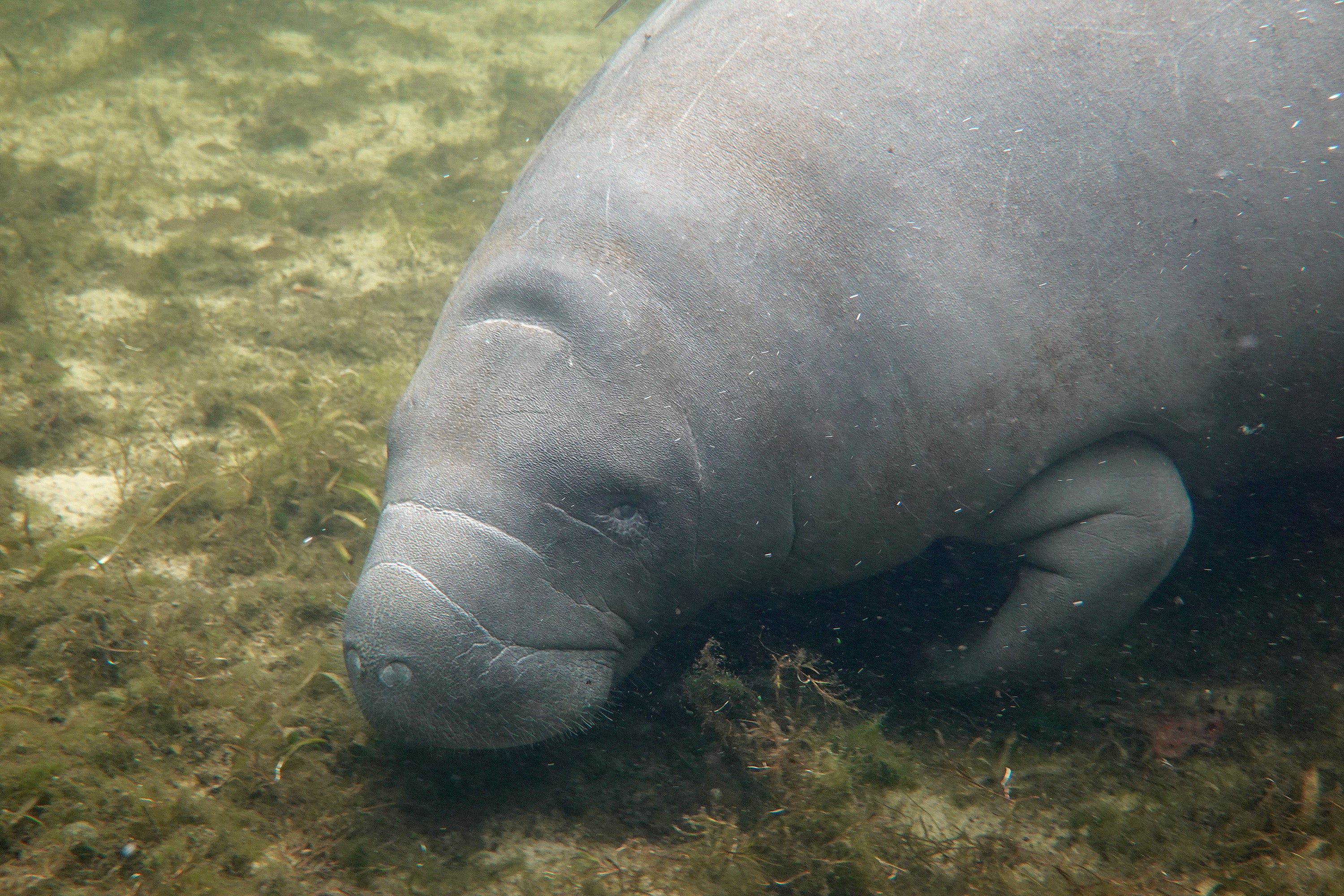Beloved manatees had their day - but their homes remain in danger
Manatees were celebrated across the country on Wednesday. The marine mammals are threatened by increasing climate change impacts
National Manatee Appreciation Day was marked on Wednesday, celebrating the gentle giants that congregate off the Florida coast.
The herbivores glide through coastal and riverine areas, feeding on seagrasses and other aquatic plants.
While the Florida manatee, a subspecies of the West Indian manatee, can be found as far west as Texas and travel as far north as Massachusetts during the summer months, the marine mammals cannot tolerate temperatures below 68 degrees for extended periods of time.
Threats from climate change and other human causes have resulted in deadly consequences for the squishy-looking species.
“They’re kind of the first animals to start to respond to any changes in the environment. And because they’re so charismatic, people really take note of that,” Florida Power & Light Company’s Manatee Lagoon education manager Rachel Shanker previously told The Associated Press.

Earlier in the year, chillier temperatures sent manatees close to warm-water discharges from power plants.
Weighing as much as 3,500 pounds and growing to between nine and 10 feet long, the greyish brown potato-shaped sea creatures can suffer from “cold stress” and potentially die from the condition. Exposure to lower water temperatures causes manatees to lose body heat and to inadequately digest their food.
“Unfortunately, when temperatures drop rapidly or remain low for significant periods of time,” Michelle Passawicz, the administrator of FWC’s manatee management program, told WUSF. She explained that “some manatees might experience adverse impacts because they're not able to find those sources of warm water.”

While boating collisions are the top man-made threat to manatees, and are responsible for about half of manatee deaths, they are also affected by pollution and the impact of harmful algae blooms that result in a loss of seagrass and can also be potentially fatal. While these blooms are increasingly due to rising temperatures in ocean waters, they are also caused by nutrient pollution from improperly treated sewage and fertilizers.
In 2021, there was a significant die-off of hundreds of manatees after they starved to death due to a lack of seagrass. They can normally live for between 50 and 60 years.
Storms are also an issue for the threatened friends, and nonprofit Save the Manatees notes that as climate change increases the severity of hurricanes and other storms, manatees may be affected by ecosystem changes. More rainfall may also result in more algae blooms.

State waters are home to more than 8,000 manatees. While deaths have dropped, records show a spike in dead calves over the past year.
In recent years, environmental groups have pushed to get manatees back on the endangered species list. The U.S. Fish and Wildlife Service said that they would remain classified as threatened.
“We always look into the future, and there are significant threats to manatees statewide,” FWC manatee veterinarian Martine de Wit told The Associated Press. “It’s looking better now, but you cannot sit back and watch it unfold, because we know it needs management and conservation efforts to protect them.”
Join our commenting forum
Join thought-provoking conversations, follow other Independent readers and see their replies
Comments
Bookmark popover
Removed from bookmarks